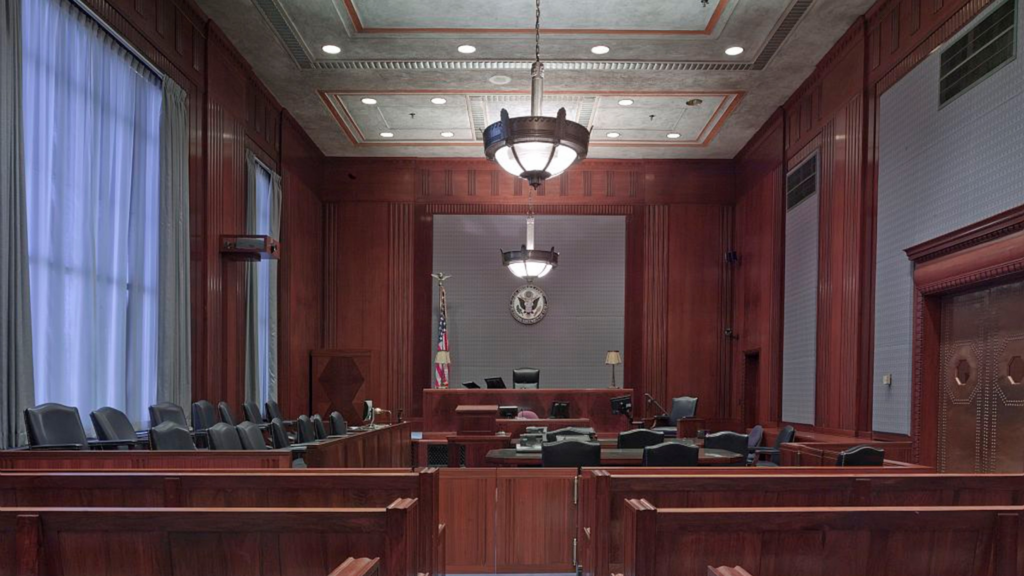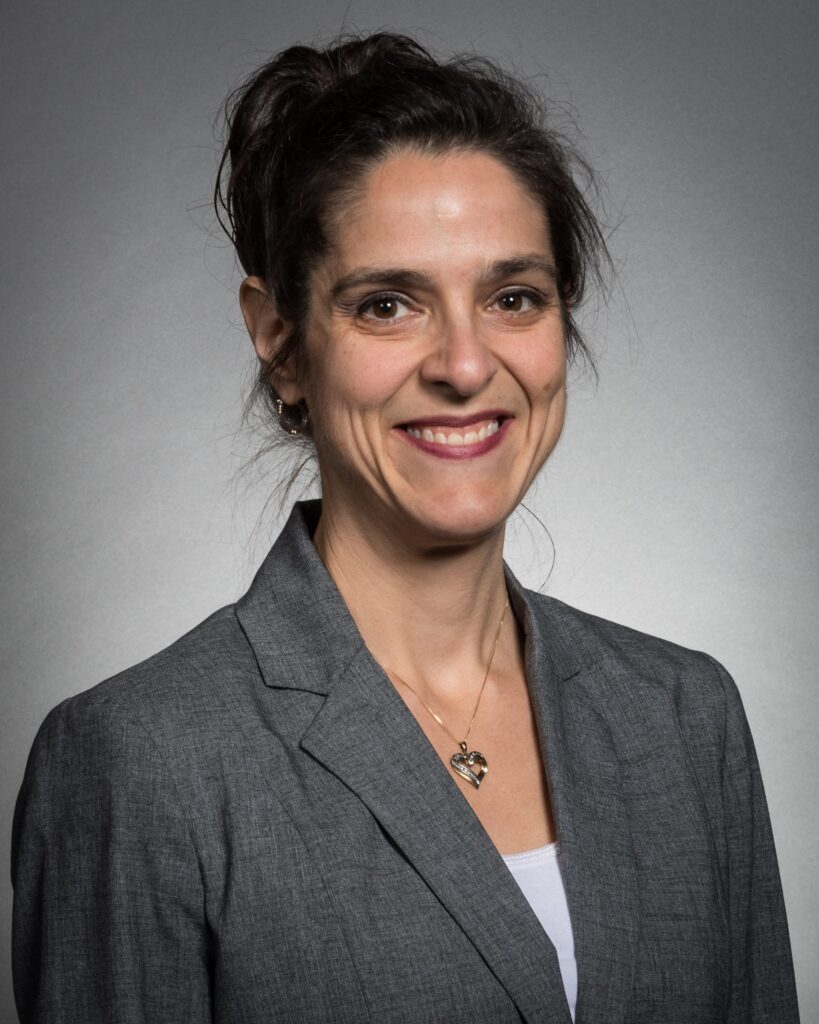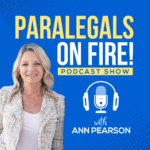How many times have you seen posts on LinkedIn and social media that go something along the lines of, “I went and got a paralegal certificate, but I can’t get a paralegal job without any experience. How do I land my first paralegal job?”?
I’m on a mission this year to interview some paralegals who broke into the paralegal profession without even having a paralegal certificate and to find out how they did it and what kind of lessons they can pass along to others.
In this blog, I’m interviewing Jessie Foss. Jessie is a board certified trial paralegal in Texas. She’s a litigation paralegal at Heygood, Orr & Pearson (no relation to me). She’s been with that firm for nearly 18 years, but it was a journey getting there and that journey started without a paralegal certificate. Let’s interview Jessie and see what lessons we can learn from her experience.
Prefer Audio Instead of Reading?
Q.
Let’s start with, how did you get into the legal profession?
A.
Well, I met my husband in 1996. I was 18 and had received my GED. I didn’t have any plans for college and didn’t know what I wanted to do, and he knew someone who was a member of the church that he attended. She was a personal injury attorney and they were looking for a receptionist for their small law firm.
I used to work for a Pizza Inn. And I handled the phones. The firm needed someone to handle a multi-line phone, and I knew I could do that. And so I met with this attorney who then asked me to come in and interview to fill that position to be the receptionist and do clerical work. So in 1997, I interviewed for that job and they gave it to me, and that’s where I started to work.
Learn about the difference between a legal assistant and a paralegal.
Litigation Paralegal Boot Camp
Are you tired of being the Panic Mode Paralegal who spends your days playing whack-a-mole with last-minute rush projects because you’re waiting for someone to show you what it takes to be great litigation paralegal?
This is the only program of its kind that provides litigation paralegals with all of the tools to master litigation cases from the complaint through the trial, and everything in between.
You will be the Confident Case Strategist faster than you ever imagined possible.

Q.
Alright, so you’ve got this receptionist position, and I take it you do a good job as a receptionist or something, right? They just promote you out of the blue or what happens there?
A.
Yes, I did well in the receptionist position. I was given new tasks because I was showing that I was doing good work. And as I was doing the work, I was very curious and wanted to know more, so I was proactive in asking questions and getting information from the attorneys.
I was able to determine what things meant, how things worked, and how processes were handled. This allowed me to learn more about the legal profession so that I could potentially advance and learn even more.
Read more about paralegal career growth – from receptionist to director.
Your Actionable Strategy
If you already have one foot in the door, like a receptionist, file clerk, or legal assistant position, but you took whatever role you could to get your foot in the door and you’re hoping it’s gonna lead to a paralegal position I want you to take notes on what Jessie shared. She was curious, she was asking questions, she was researching. On her own. So if you took that receptionist position to get your foot in the door to be a paralegal, and you’re just sitting at that reception desk waiting for someone to walk up to you and say, “Hey, you’ve been promoted to a paralegal position,” you’re gonna be waiting a long time. That’s a really important lesson.
Q.
Alright, so you are at this firm. You are then given cases, you’ve advanced to an office manager. So you’re what, about eight, nine years into your career by now?
A.
Yes. I was at that firm for almost 10 years. It was nine and a half years.
And at that point, I wanted to learn more. I wanted to do trial work. The firm I was at, we got cases ready for trial, but we never went to trial. I decided I wanted to get a paralegal certificate through a program that the University of North Texas offered. I was able to talk one of my coworkers into joining that with me and taking the course with me because she also wanted to learn more and advance in her career.
It helped to have a buddy. It was amazing. It was very helpful. We helped each other tremendously in supporting each other and, you know, working on the homework and the assignments and we learned from each other, which helped us both get through that with extra confidence and know that we were going to receive our certificates.
Learn why fake it till you make it is a bad idea.

Q.
What did you learn in that certificate program? What did you learn that actually helped you then be prepared to go to trial?
A.
Honestly, I didn’t learn a whole lot of new things from that because I had already been doing the work. When I took the course, a lot of that was already known to me. What I did learn was how to look up statutes and cases.
I had never had any experience with that. The firm I was with didn’t do a lot of legal research. So we did get kind of a field trip and we got to go to the law library and look up statutes and codes and case law. That was exciting and was something new that I did get to learn through that course.
Q.
Okay, so then you get your paralegal certificate because you wanna do trials and you’ve gotta go to another firm, right? To do trials, so you leave that firm?
A.
Yes, I spoke to several recruiters to help me prepare for interviews. At that point, I hadn’t interviewed for a legal position in nine years, so I didn’t have a lot of experience in how to present myself, how to write a resume, or how to interview.
The recruiters were very helpful. I bought a book and I did some extra research online just on how to do an interview, how to be confident, how to express your skills, and why you are the best fit for that position.
Get tips on overcoming obstacles to land your first paralegal job.
Q.
So you end up at a plaintiff’s firm, a pretty well-known plaintiff’s trial firm.
How did that happen?
A.
I was sent on an interview and what was funny was I almost did not go to this interview because of the drive time from my home. It would’ve been a pretty good commute. I live in a pretty busy city and making that commute was not something I was going to look forward to. But my recruiter encouraged me and said to just go on the interview and treat it like a mock interview.
It’s just practice, you never know what’s going to happen. So I accepted the interview and was offered the position that same day, which was surprising, and I took it and started working.
Learn about the difference between a legal assistant and a paralegal.
Q.
You get that position! What do you think led to you getting the offer that very day? Like how did you do in the interview, or what do you think it was about you that made the attorney wanna hire you?
A.
The interview was very brief and he really focused on my experience. I had the paralegal certificate, and one question that he asked me was, did you learn anything new by getting your certificate?
I answered him similar to how I answered you that I didn’t learn a whole lot from that because I already had the experience at the prior firm and the hands-on experience that I had was what he was looking for. He needed someone to come in and fill the position and take on his litigation cases.
Q.
Okay, so in other words, he probably would have hired you even without that paralegal certificate, I believe. I learned that you’re a board-certified trial paralegal in Texas and that you did that in 2018. I assume it was when you were at this same firm.
Was that a hard test to take? Is it something that you decided to just do? That could probably be a pricey certification to get.
A.
It is a pricey certification and the exam is not easy. You’re basically taking what’s similar to what an attorney would take when they go take the bar exam. It’s very intense. And there’s a lot of studying involved.
You’ve got to study a number of rules and you’ve gotta memorize a number of rules. But I wanted to have that certification and learn more. And in that decision, I decided that since I was going to do this for myself and it was going to benefit the firm, I went to my supervising attorney and asked if they would pay for the exam and for all the CLEs.
I had to have hours and hours of CLEs before I could even take the exam or apply for the exam. And they were so willing to support me. They paid for the exam cost, my travel, and the supplies that I needed. I needed to have a special laptop to take that exam. And so they were incredibly supportive and assisted me with getting that certification.
Get more career advice from Ask Me Anything – Paralegal Career Edition.
Your Actionable Strategy
Wow. I love seeing that. So readers, back up for a second because first I have to remind you. You saw what she said, she asked. If you don’t ask the answer is always no. Maybe there’s a specialty certification that you’re looking to get and you think, well, I can’t afford it, or I have to do all this in my free time and I have to go out of town.
And you don’t ever do it because you don’t think that you can afford it. Ask. That’s a good lesson for everyone.
Get tips on how to ask your firm to invest in you.
Q.
Earlier we talked about your curiosity and asking a lot of questions and doing research on your own. Those are all good traits and skills for any paralegal to have.
But are there some traits or skills that you think are important specifically for a trial paralegal?
A.
I think for a trial paralegal, the most important skill you’re going to need is organization and being able to prioritize tasks. When you’re in the courtroom, you may be assisting multiple attorneys, some there in the courtroom, and some that are back at the hotel pinging you with additional tasks that need to be done.
That can be a very stressful situation. And so you’re gonna need to be able to just break down the tasks and prioritize what needs to get done first. What’s most critical and urgent, and what can get done down the line a little later, or what can be delegated out to someone else who can get that done in the amount of time it needs to be done.
Learn how to find your confident voice.

Q.
Yeah, I couldn’t agree more in, in fact, one of the things that I teach in the trial prep bootcamp is this trial prep checklist that kind of schedules those little things out as far as possible, because once you get down to crunch time, you’re not gonna have time to do the fluffy stuff. You’re scr, you’re scrambling, right?
Yes, very. So I know that litigation paralegals out there listening are gonna wanna know what’s your most memorable trial moment if you have one.
A.
My most memorable trial moment would be last year we were in Medford, Oregon, for a May trial that was out there and we were all in the courtroom. The jury was there, the attorneys were there, and Mr. Miller, one of the partners, was having a conversation with the judge. And in that conversation, he had said that if he could get something from the judge as soon as he could so that he could get it to me and said, you know, we need to have that to Jesse because she’s the most important person in on the team.
That was so wonderful to hear. And everybody got to hear it, and it ended up on the court’s trial transcript record that I was appreciated and that I was needed, and that they could rely on me to get done whatever needed to get done on time.
It was kind of the validation of I am a valued, respected, indispensable, essential member of the trial team and said in open court.
Yes. It made me feel like a professional there on the team with them and not just, I don’t know the word to use, but support staff or, yeah. It was very special to hear that.
Download our free template for organizing your trial notebook!
Your Actionable Strategy
I want to thank Jessie so much for sharing her story with us today. I can guarantee someone out there is going to be inspired and hopefully walk away with some great actionable strategies.
- It’s the one that I’ve been saying all along. If you don’t ask the answer’s always no. So if you want that extra certification, it’s not going to hurt anything for you to at least ask your employer if they would support you in at least part of it.
- The fact that the paralegal certificate, I am not by any means saying to people. You don’t need a paralegal certificate. What I am saying is it’s possible to get a position without a paralegal certificate. So if you’ve got one already, then you’ve got a leg up. At least you may get your foot in the door.
I’m not in any way encouraging people to not get their paralegal certificate. What I’m saying is there are lots of people out there that are working in paralegal positions like Jessie, who’s been at this firm for 17 years now doing great trial work and doing work that she enjoys and being a valued, respected member of her team. They do exist.

Meet Our Guest
Jessie Foss is a Board Certified Paralegal in Personal Injury Trial Law and received her certification through the Texas Board of Legal Specialization in 2019. She is also a member of the Paralegal Division of the State Bar of Texas. Jessie has over 25 years of litigation experience in civil and personal injury trial law. She is the senior litigation paralegal at Heygood, Orr & Pearson in Dallas, Texas and has been there for nearly 18 years. Jessie assists the partners in case investigation and development, discovery, database management, legal research, trial preparation and courtroom attendance. Her experience includes litigation and pre-litigation in complex multiparty cases involving personal injury and wrongful death, product liability, professional liability, mass tort, construction defect cases, bad faith insurance, business litigation, and breach of contract.
She has been married for 26 years, spends most of her time exploring the outdoors such as hiking, biking and kayaking with her husband, and enjoys doing art projects.



























